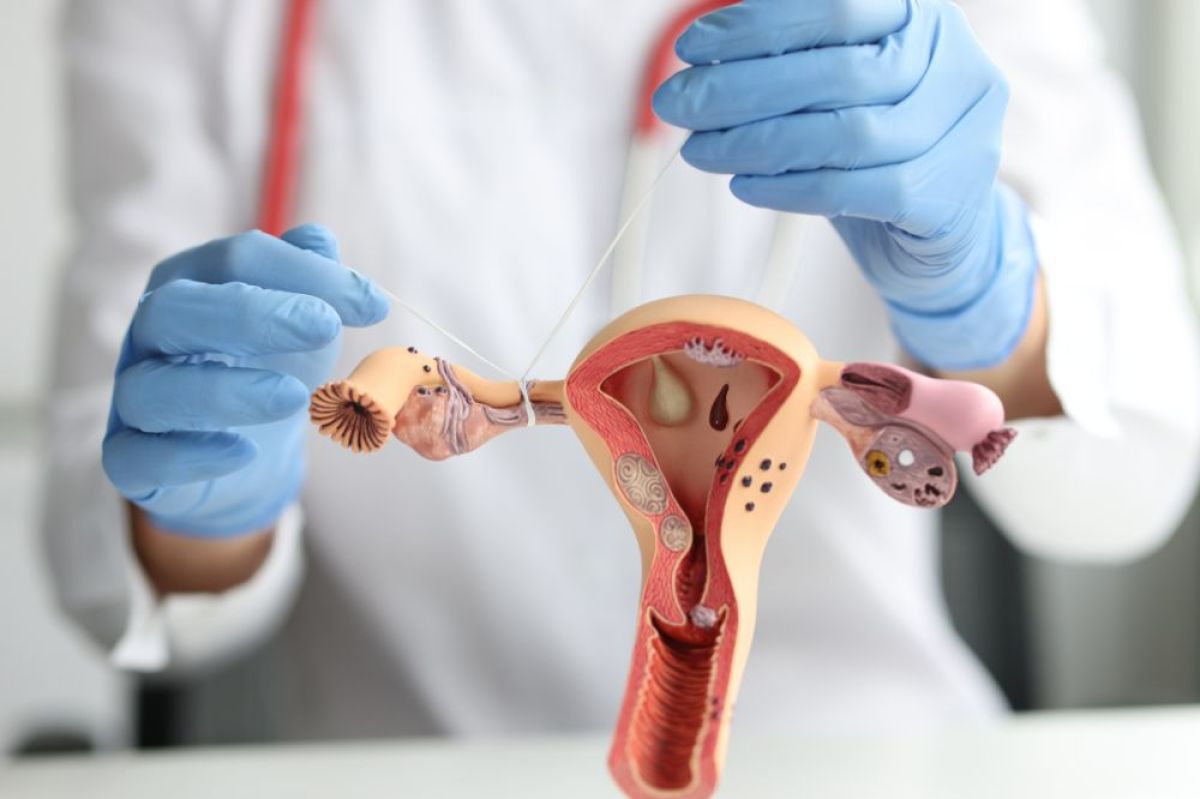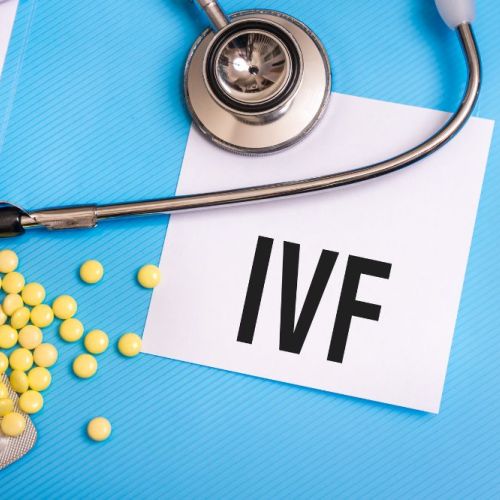Can You Get Artificial Insemination With Tubes Tied?

Having your tubes tied is intended to be a permanent method of birth control. After some time passes, it’s not uncommon for women who have had a tubal ligation to have second thoughts. Questions often come up such as “Can you get artificial insemination with tubes tied?” The best thing to do when you have questions about fertility options is to set up a consultation with us at The Center for Reproductive Health.
Pregnancy After Tubal Ligation
If you’ve had a tubal ligation done, during the procedure, a surgeon blocked, closed, or removed part of your fallopian tubes. This stops sperm from being able to reach an egg that’s ready for fertilization. Since sperm can’t travel to reach the egg, artificial insemination won’t work after you’ve had your tubes tied.
If you decide you’d like to get pregnant after tubal ligation, there are a couple of options to consider. These include in vitro fertilization (IVF) and tubal reversal.
In Vitro Fertilization
IVF is a form of assisted reproductive technology that may help you successfully attain pregnancy after your tubes are tied. This involves hormonal injections to stimulate ovulation and the development of multiple eggs. Eggs are then harvested and fertilized in a lab setting where they grow into an embryo before being implanted in the uterus. This procedure bypasses the fallopian tubes which have been cut or blocked and may help you to successfully attain pregnancy.
IVF can be done with your own eggs or with eggs donated by other women. If there are issues with your partner’s sperm, donated sperm is also an option.
Tubal Reversal Surgery
Tubal reversal surgery may be an option for some women who wish to get pregnant after having their tubes tied. Whether your tubal ligation can be reversed depends on the type of tubal ligation procedure that was done and whether there are enough healthy fallopian tube segments left to successfully reconnect. The best results from tubal reversal require the remaining tubes to be 7 cm or more in length.
Before having this type of procedure, you’ll undergo a thorough physical examination and review of your medical history. Your doctor also considers your body mass index (BMI), your age, and whether you have any other conditions that may cause infertility such as endometriosis or uterine fibroids.
Considering Your Options
While many women successfully attain pregnancy after tubal ligation, there are no guarantees that either IVF or tubal reversal will be successful. If you’re under the age of 35 and opt for tubal reversal, you have between 50 and 80 percent chance of becoming pregnant within two years following surgery. The chance of success decreases with age.
It’s not unusual to feel confused when deciding which option to pursue. The knowledgeable and compassionate team at The Center for Reproductive Health can help you consider your options based on your individual situation and help you come to a decision about which choices may be best for you. Contact us today to ask questions or to schedule a consultation.
Eliran Mor, MD
Reproductive Endocrinologist located in Encino, Santa Monica, Valencia & West Hollywood, CA
FAQ
Reproductive endocrinology and Infertility is a sub-specialty of Obstetrics and Gynecology. In addition to managing medical and surgical treatment of disorders of the female reproductive tract, reproductive endocrinologist and infertility (REI) specialists undergo additional years of training to provide fertility treatments using assisted reproductive technology (ART) such as in vitro fertilization.
Reproductive endocrinologists receive board certification by the American Board of Obstetrics and Gynecology in both Obstetrics and Gynecology and Reproductive Endocrinology and Infertility.
In general, patients should consider consulting with an REI specialist after one year of trying unsuccessfully to achieve pregnancy. The chance of conceiving every month is around 20%, therefore after a full year of trying approximately 15% of couples will still not have achieved a pregnancy.
However, if a woman is over the age of 35 it would be reasonable to see a fertility specialist earlier, typically after 6 months of trying.
Other candidates to seek earlier treatment are women who have irregular menses, endometriosis, fibroids, polycystic ovary syndrome (PCOS), women who have had 2 or more miscarriages, or problems with the fallopian tubes (prior ectopic pregnancy).
Approximately 1/3 of the time cause for infertility is a female factor, 1/3 of the time a male factor, and the remaining 1/3 a couples’ factor.
At CCRH, we emphasize the importance of establishing a correct diagnosis. Both partners undergo a comprehensive evaluation including a medical history and physical exam.
Furthremore, the woman’s ovarian reserve is assessed with a pelvic ultrasound and a hormonal profile. A hysterosalpingogram (HSG) will confirm fallopian tube patency and the uterine cavity is free of intracavitary lesions. A semen analysis is also obtained to evaluate for concentration, motility, and morphology of the sperm.
Additional work up is then individualized to direct the best possible treatment option for each couple.
In vitro fertilization (IVF) is the process that involves fertilization of an egg outside of a woman’s body.
The process starts with fertility drugs prescribed to help stimulate egg development. In your natural cycle, your body is only able to grow one dominant egg, but with stimulation medication we can recruit multiple eggs to continue to grow. After about 8-10 days of stimulation, the eggs are surgically retrieved and then fertilized with sperm in a specialized laboratory. Fertilized eggs are then cultured under a strictly controlled environment within specialized incubators in the IVF laboratory for 3-5 days while they develop as embryos. Finally, embryos (or an embryo) are transferred into the uterine cavity for implantation.
Before deciding if IVF is the right choice, it’s important to sit down with an REI specialist to discuss available treatment options. For some people, other methods such as fertility drugs, intrauterine insemination (IUI) may be the best first choice treatment. At CCRH, we believe each individual couple is unique and not everyone needs IVF.
While not painful, the fertility medications may some side effects including headaches, hot flashes, mood swings, and bloating. The injection sites may also bruise.
Unfortunately, no. Many people think once they start IVF it’s a matter of time that they will be pregnant and have a baby. But according to national statistics per the Society of Assisted Reproduction (SART), on average 40% of assisted reproduction cycles achieve live births in women under age 35. The chances of success then continue to decrease with advancing age.
At CCRH, we employ only evidence-based interventions to ensure patient safety and optimal outcome. While we cannot guarantee a baby, we guarantee that you will receive the best, most advanced, personalized care to help you maximize your chance of a baby.
The average IVF success rate (success measured in live birth rate) using one’s own eggs begins to drop around age 35 and then rapidly after age 40. This is due to the decline in egg quantity and egg quality as a woman ages.
Our clinic’s success rate consistently beats the national average year after year.
Individual insurance plans often do not have any coverage for infertility treatments. If you have a group plan, you can call members services to see if they have coverage for infertility (including consultation/workup and IVF).
After your consultation with our REI specialist, one of our dedicated account managers with sit with you to go over the cost of treatment.




